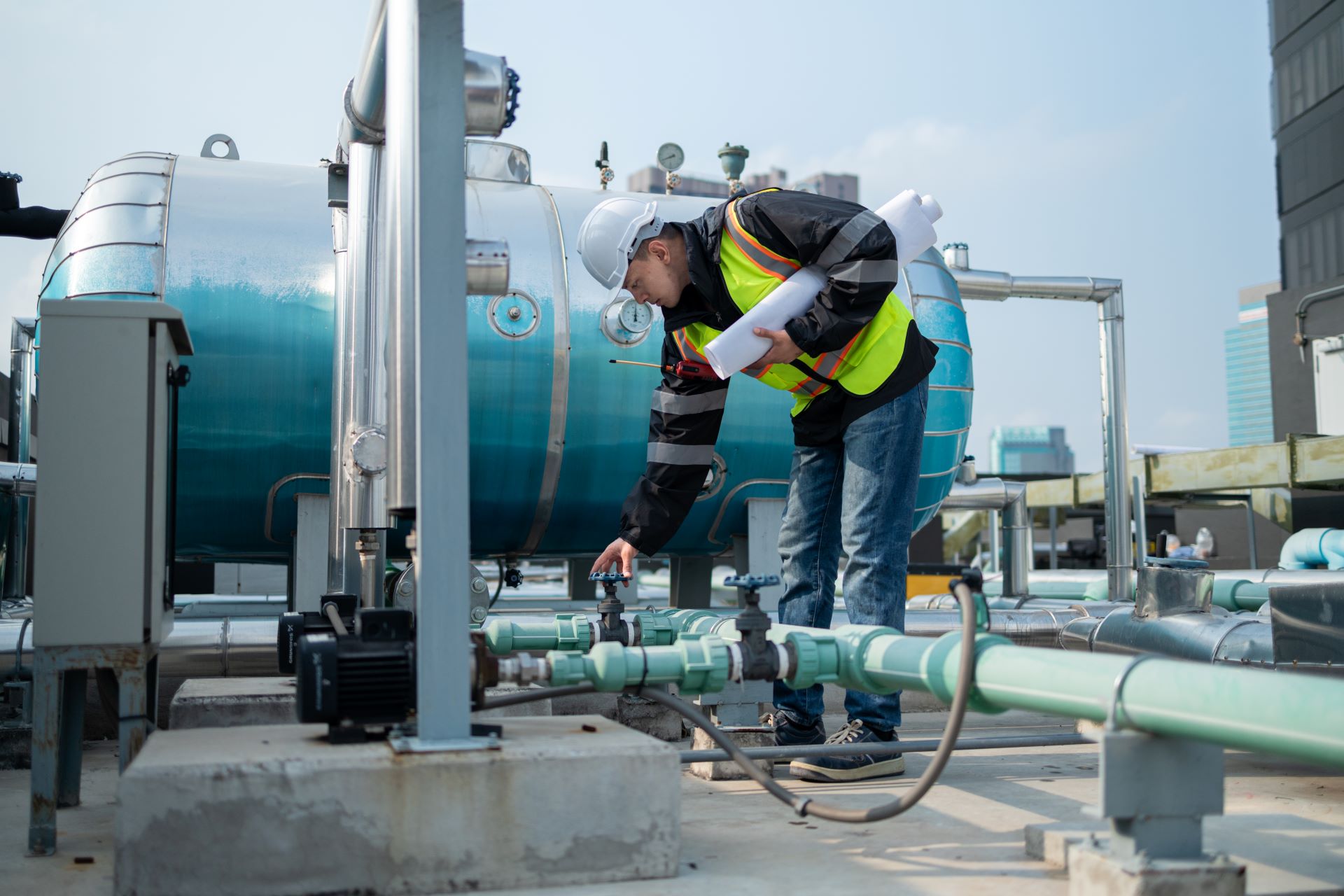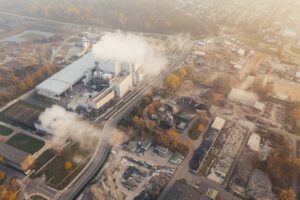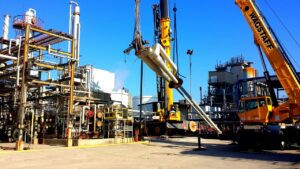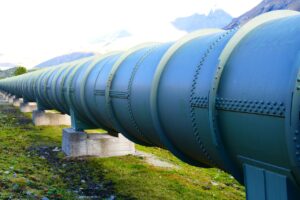Greenhouse gas (GHG) emissions are a major contributor to climate change, and the oil and gas sector plays a significant role in these emissions. Methane, a potent GHG, is commonly released during the extraction, processing, and transportation of oil and gas. Reducing these emissions is crucial for tackling climate change and promoting a sustainable future.
One effective way to address this issue is through advanced leak detection technologies. Our leak detection systems focus on the early identification and repair of methane leaks. By utilizing cutting-edge Computational Pipeline Monitoring (CPM) systems, we can accurately detect leaks during both steady-state and transient conditions. This allows for rapid response, preventing methane from escaping into the atmosphere.
Our technology not only helps companies comply with stringent emissions regulations but also supports broader efforts to transition to a low-emission economy. By minimizing methane emissions, we contribute to reducing the carbon footprint of the oil and gas industry. This proactive approach aligns with the global push towards cleaner energy sources and helps achieve emissions reduction targets. Our commitment to responsible resource utilization ensures that companies can operate efficiently while lessening their environmental impact.
Understanding the GHG Emission Impact in the Oil and Gas Sector
Greenhouse gases (GHGs), like methane, have a significant impact on our environment. Methane is more powerful than carbon dioxide, and traps heat in the atmosphere much more efficiently. This makes it a major contributor to climate change. In the oil and gas sector, methane emissions occur at various stages, including extraction, processing, and transportation. These emissions can lead to a higher carbon footprint if not managed properly.
The upstream and midstream sectors of the oil and gas industry are particularly prone to methane leaks. Upstream refers to the exploration and production of oil and gas, while midstream covers their transportation and storage. Methane leaks during these stages can happen due to equipment failures, human errors, or natural wear and tear of pipelines. Understanding the magnitude of these emissions is crucial for developing effective strategies to reduce them.
By addressing methane emissions, we not only mitigate climate change but also improve air quality and public health. Methane contributes to ground-level ozone, which can cause respiratory problems and other health issues. Reducing methane emissions is therefore essential for both environmental and human health.
How Vanmok’s Leak Detection Technology Works to Reduce Methane Emissions
We offer advanced leak detection technology to tackle methane emissions in the oil and gas industry. Our system is based on Computational Pipeline Monitoring (CPM) and provides accurate detection of leaks and ruptures in both steady-state and transient conditions.
Real-time data collection is key to our system. Sensors placed along pipelines constantly monitor pressure, flow rate, and other parameters. If there is a deviation that signals a leak, our system immediately sends alerts. This allows quick action to be taken, reducing methane emissions and preventing further damage.
The Real-Time Transient Models (RTTM) technology simulates the behaviour of the fluid within the pipeline, offering a detailed analysis of the pipeline’s condition. This makes it possible to detect even small leaks that might otherwise go unnoticed. By identifying and addressing these leaks early, we help companies minimize their carbon footprint and comply with environmental regulations. This proactive approach is essential for effective GHG reduction in the oil and gas sector.
Key Benefits of Early Leak Detection for Regulatory Compliance and Environmental Protection
Early leak detection in pipelines offers several important benefits for companies in the oil and gas industry. Primarily, it helps companies comply with stringent environmental regulations. Governments and environmental agencies enforce strict rules regarding methane emissions. Non-compliance can result in hefty fines, legal action, and damage to a company’s reputation. By using our advanced leak detection systems, companies can ensure they meet these standards, avoiding penalties and safeguarding their public image.
Early detection technologies also play a vital role in environmental protection. Methane is a potent greenhouse gas that significantly contributes to global warming. By preventing leaks, we can minimize the amount of methane released into the atmosphere, thereby reducing the overall carbon footprint. This proactive approach supports global efforts to combat climate change and promotes sustainable practices in the industry.
Moreover, early leak detection enhances operational efficiency. Unchecked leaks can lead to costly, unplanned downtime and potential environmental clean-up expenses. By identifying and addressing leaks early, companies can maintain continuous operations and avoid unnecessary costs. This not only saves money but also ensures a more reliable supply chain for oil and gas products.
Supporting a Low Emission Economy with Advanced Pipeline Monitoring Solutions
Our advanced pipeline monitoring solutions are crucial in supporting a low emission economy. One of the key mechanisms we deploy is the timely identification and repair of leaks along industrial pipelines. This strategy effectively prevents the release of methane, helping to mitigate the greenhouse gas emissions associated with pipeline operations.
Our use of Computational Pipeline Monitoring (CPM) systems ensures that leaks and ruptures are detected early. This capability allows for swift and effective mitigation actions, directly targeting methane emissions. These solutions are vital for industries aiming to transition to cleaner energy sources and achieve their emissions reduction targets.
Additionally, our pipeline monitoring solutions foster responsible resource utilization. By minimizing waste and ensuring efficient resource management, we help companies contribute to a more sustainable and environmentally conscious economy. This aligns with global initiatives to reduce emissions and supports a shift towards greener industrial practices.
Implementing these advanced monitoring technologies in the oil and gas sector is a significant step towards a low emission economy. Our reliable and effective leak detection capabilities enable companies to operate more efficiently while minimizing their environmental footprint. This proactive approach not only addresses current challenges but also sets the stage for a more sustainable future.
Conclusion
In the oil and gas sector, proactive leak detection is essential for reducing greenhouse gas emissions and supporting a low emission economy. Our advanced leak detection technology plays a crucial role in minimizing methane emissions, thereby reducing the carbon footprint and aiding in climate change mitigation. By offering real-time data and early detection, we help companies comply with environmental regulations and avoid costly penalties.
Furthermore, our solutions enhance operational efficiency and promote responsible resource utilization. This fosters a more sustainable and environmentally conscious industrial landscape. Implementing our state-of-the-art pipeline monitoring systems is a key step for companies aiming to transition to cleaner energy sources and achieve their emissions reduction targets.
For more information on how our leak detection technology can support your efforts in reducing greenhouse gas emissions and promoting sustainability, visit Vanmok. We are committed to helping you enhance your pipeline safety and efficiency with our cutting-edge solutions.













